
The Technical University of Berlin is a public research university located in Berlin, Germany. It was the first German university to adopt the name "Technische Universität".
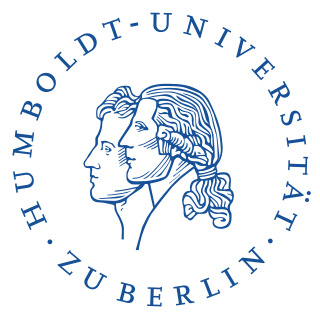
Humboldt-Universität zu Berlin is a German public research university in the central borough of Mitte in Berlin. It was established by Frederick William III on the initiative of Wilhelm von Humboldt, Johann Gottlieb Fichte and Friedrich Ernst Daniel Schleiermacher as the University of Berlin in 1809, and opened in 1810, making it the oldest of Berlin's four universities. From 1828 until its closure in 1945, it was named Friedrich Wilhelm University. During the Cold War, the university found itself in East Berlin and was de facto split in two when the Free University of Berlin opened in West Berlin. The university received its current name in honour of Alexander and Wilhelm von Humboldt in 1949.

Heinz Hopf was a German mathematician who worked on the fields of topology and geometry.

Friedrich Ernst Peter Hirzebruch ForMemRS was a German mathematician, working in the fields of topology, complex manifolds and algebraic geometry, and a leading figure in his generation. He has been described as "the most important mathematician in Germany of the postwar period."

The Technische Universität Darmstadt, commonly known as TU Darmstadt, is a research university in the city of Darmstadt, Germany. It was founded in 1877 and received the right to award doctorates in 1899. In 1882, it was the first university in the world to set up a chair in electrical engineering. In 1883, the university founded the first faculty of electrical engineering and introduced the world's first degree course in electrical engineering. In 2004, it became the first German university to be declared as an autonomous university. TU Darmstadt has assumed a pioneering role in Germany. Computer science, electrical engineering, artificial intelligence, mechatronics, business informatics, political science and many more courses were introduced as scientific disciplines in Germany by Darmstadt faculty.

University of Erlangen–Nuremberg is a public research university in the cities of Erlangen and Nuremberg in Bavaria, Germany. The name Friedrich–Alexander comes from the university's first founder Friedrich, Margrave of Brandenburg-Bayreuth, and its benefactor Alexander, Margrave of Brandenburg-Ansbach.
The Gottfried Wilhelm Leibniz Prize, in short Leibniz Prize, is awarded by the German Research Foundation to "exceptional scientists and academics for their outstanding achievements in the field of research". Since 1986, up to ten prizes are awarded annually to individuals or research groups working at a research institution in Germany or at a German research institution abroad. It is considered the most important research award in Germany.

The Berlin-Brandenburg Academy of Sciences and Humanities, abbreviated BBAW, is the official academic society for the natural sciences and humanities for the German states of Berlin and Brandenburg. Housed in three locations in and around Berlin, Germany, the BBAW is the largest non-university humanities research institute in the region.
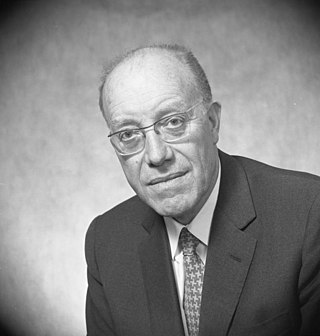
Heinz Maier-Leibnitz was a German physicist. He made contributions to nuclear spectroscopy, coincidence measurement techniques, radioactive tracers for biochemistry and medicine, and neutron optics. He was an influential educator and an advisor to the Federal Republic of Germany on nuclear programs.
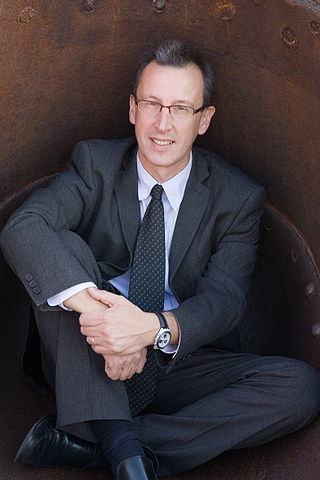
Enrique Zuazua is the Head of the Chair for Dynamics, Control and Numerics - FAU DCN-AvH at the University of Erlangen–Nuremberg (FAU). He is also Distinguished Research Professor and the Director of the Chair of Computational Mathematics of DeustoTech Research Center of the University of Deusto in Bilbao, Basque Country, Spain and Professor of Applied Mathematics at Universidad Autónoma de Madrid (UAM).
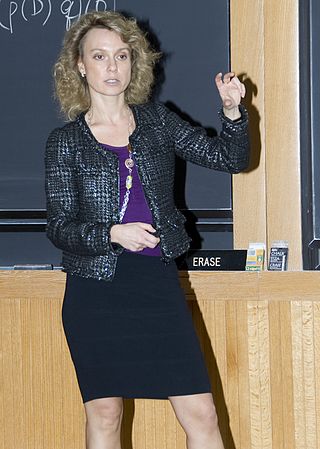
Olga Holtz is a Russian mathematician specializing in numerical analysis. She received the Sofia Kovalevskaya Award in 2006 and the European Mathematical Society Prize (2008). Since 2008, she is a member of the Young Academy of Germany.
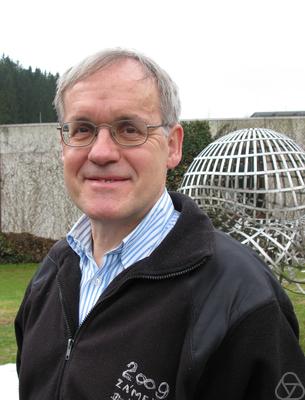
Alexander (Lex) Schrijver is a Dutch mathematician and computer scientist, a professor of discrete mathematics and optimization at the University of Amsterdam and a fellow at the Centrum Wiskunde & Informatica in Amsterdam. Since 1993 he has been co-editor in chief of the journal Combinatorica.
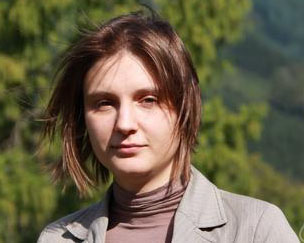
Maryna Sergiivna Viazovska is a Ukrainian mathematician known for her work in sphere packing. She is full professor and Chair of Number Theory at the Institute of Mathematics of the École Polytechnique Fédérale de Lausanne in Switzerland. She was awarded the Fields Medal in 2022.
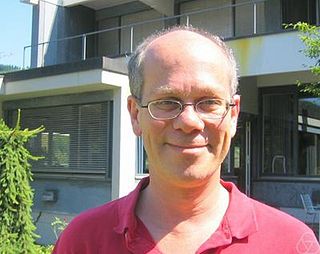
Marc N. Levine is an American mathematician.

Hannah Markwig is a German mathematician specializing in tropical geometry. In 2010 she won both the Heinz Maier-Leibnitz Prize of the Deutsche Forschungsgemeinschaft and the Helene Lange Prize for her research.
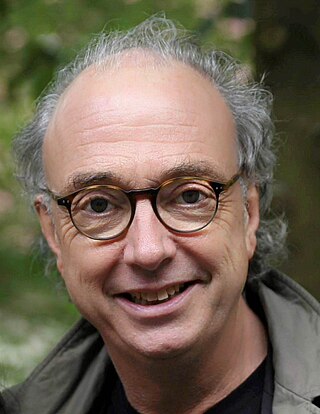
Johannes Alfred Buchmann is a German computer scientist, mathematician and professor emeritus at the department of computer science of the Technische Universität Darmstadt.
The Alexander von Humboldt Professorship is an academic prize named after Alexander von Humboldt and awarded by the Alexander von Humboldt Foundation since 2008. The prize is intended to attract internationally leading scientists from abroad to Germany so that they can carry out top-level research there and strengthen Germany as a research location. The prize includes a permanent full professorship at the hosting university, plus 5 million euros for experimentally working scientists or 3.5 million euros for theoretically working scientists. This makes it the most highly endowed research prize in Germany, and possibly world-wide. A maximum of ten Alexander von Humboldt Professorships can be awarded every year to researchers of all disciplines. From 2020 to 2024, an additional six Humboldt Professorships in the field of artificial intelligence can be awarded each year.
Stefan Roth is a German computer scientist, professor of computer science and dean of the department of computer science of the Technische Universität Darmstadt. He heads the Visual Inference Lab.
Marc Alexa is a professor of computer science at TU Berlin working in the fields of computer graphics, geometric modeling and geometry processing.
Mihyun Kang is a South Korean mathematician specializing in combinatorics, including graph enumeration and the topological properties of random graphs. She is a professor in the Institute of Discrete Mathematics at the Graz University of Technology.















